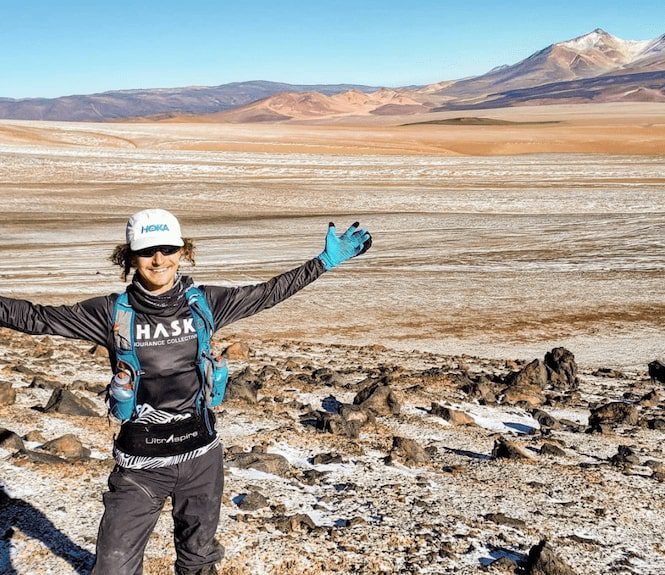American runner flies to 2 Kilimanjaro FKTs
Tyler Andrews set the records for both the fastest ascent and round trip on Africa's tallest mountain
 Photo by:
Instagram/tylercandrews
Photo by:
Instagram/tylercandrews
On March 13, American runner Tyler Andrews set a pair of fastest known times (FKTs) on Tanzania’s Mount Kilimanjaro, breaking the record for the fastest ascent as well as for fastest round trip. Andrews, who owns dozens of FKTs, made it to the peak of Kilimanjaro in four hours and 32 minutes, and he stopped the clock at the base of the mountain for a final time of six hours, 37 minutes.
Kilimanjaro’s FKTs
Standing at 5,895m, Kilimanjaro is the tallest mountain in Africa. Andrews’s entire trek on the mountain ended up just shy of a marathon–he crossed the finish line after 40 km of running. For some FKTs, challengers must stick to a set route, but for the records on Kilimanjaro, runners can go any way they like, and as long as they reach the summit and get back down, their results will be record-eligible.
There’s also the matter of running supported, self-supported or unsupported. To go supported means the runner had a crew with them to help deliver food, water or any other supplies or aid they may have needed during the run. Self-supported means the runner didn’t have a crew, but they did stash supplies along the route. Finally, there’s the option to run unsupported (which is how Andrews decided to tackle Kilimanjaro), meaning the runner has no crew and no mid-route stashes—he or she must carry everything they will need.
On the FKT website, there is no unsupported ascent record listed, so the time to beat for Andrews was the supported mark. This belonged to Ecuadorian athlete Karl Egloff, who made the trip up Kilimanjaro in four hours and 56 minutes back in 2014. (When Egloff ran his FKT, he beat ultrarunning legend Kilian Jornet‘s previous record by 27 minutes.)
For the round-trip FKT, there was an unsupported record for Andrews to chase. The time to beat was nine hours and 22 minutes, which Tanzanian local Simon Mtuy ran back in 2006. Elgoff also owned the supported round trip FKT with a time of six hours and 42 minutes. (Seeing as there is an unsupported round trip FKT, it stands to reason that there should be an ascent record as well. The absence of an ascent time isn’t explained on the FKT website, but it’s likely that Mtuy simply didn’t submit a time for the climb, but rather just the entire run.)
Andrews breaks the records
Despite running unsupported, Andrews had no trouble beating Egloff’s FKT on the ascent. He covered the climb in four hours, 32 minutes, beating Egloff’s record by close to half an hour. For many people, this would be enough racing for the day, and a relaxed walk back down the mountain would be a welcome break. That was not the case for Andrews, however, and he was only halfway through the route.
He flew down the route, covering the descent very efficiently. He reached the bottom in a little over two hours, clocking a final time of six hours and 37 minutes. This time not only smashed Mtuy’s previous unsupported record, but Andrews was also able to just squeeze under Egloff’s supported FKT result, beating the mark by five minutes.
Andrews’s final time worked out to an average pace of 9:53 per kilometre, which is extremely impressive considering he covered thousands of metres of elevation gain throughout the run. To view his complete run data, click here.


